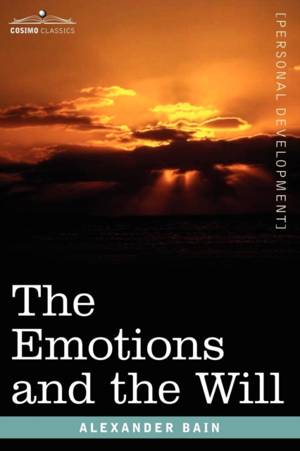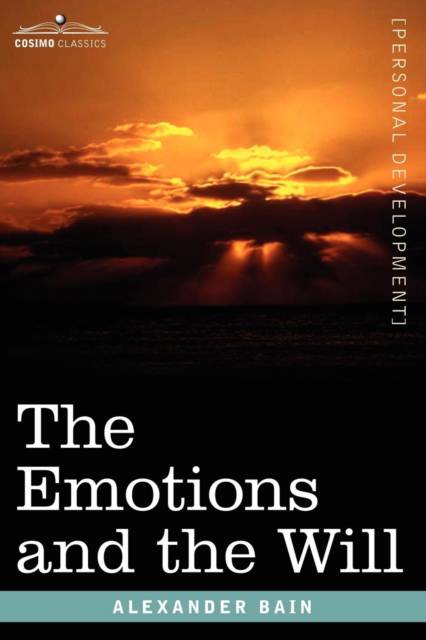
- Afhalen na 1 uur in een winkel met voorraad
- Gratis thuislevering in België vanaf € 30
- Ruim aanbod met 7 miljoen producten
- Afhalen na 1 uur in een winkel met voorraad
- Gratis thuislevering in België vanaf € 30
- Ruim aanbod met 7 miljoen producten
Zoeken
Omschrijving
Bridging the first forays into human psychology with our modern perception of the discipline, Alexander Bain's writings are profoundly importantly texts in appreciating how we've come to understand the vast complexity of the human mind. First published in 1859, this is a replica of the completely revised 1888 third edition of Bain's classic work on human emotion, approaching the experience from a philosophical rather than a physiological standpoint. Here is the beginning of contemporary psychology: . the physical manifestations of human feeling . the evolution of the human brain and mind . how tender emotion enhances sociability . anger, power, and fear and their uses . the aesthetic emotions, from beauty to humor . how conflicting motives produce conflict . the difference between belief and knowledge . and much, much more. Scottish philosopher and psychologist ALEXANDER BAIN (1818-1903) was the chair of logic and English at the University of Aberdeen from 1860 to 1880. He also wrote The Senses and the Intellect (1855), Mental and Moral Science (1868), and Education as a Science (1879).
Specificaties
Betrokkenen
- Auteur(s):
- Uitgeverij:
Inhoud
- Aantal bladzijden:
- 640
- Taal:
- Engels
Eigenschappen
- Productcode (EAN):
- 9781596059405
- Verschijningsdatum:
- 1/11/2006
- Uitvoering:
- Paperback
- Formaat:
- Trade paperback (VS)
- Afmetingen:
- 152 mm x 229 mm
- Gewicht:
- 925 g

Alleen bij Standaard Boekhandel
+ 81 punten op je klantenkaart van Standaard Boekhandel
Beoordelingen
We publiceren alleen reviews die voldoen aan de voorwaarden voor reviews. Bekijk onze voorwaarden voor reviews.








